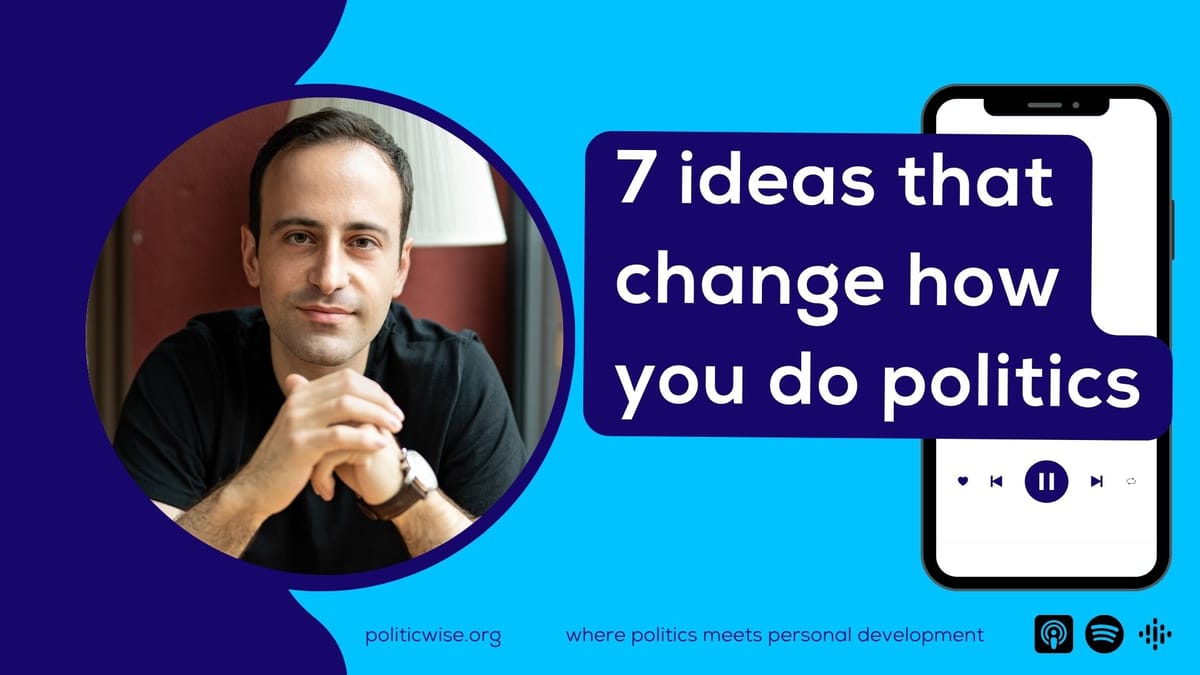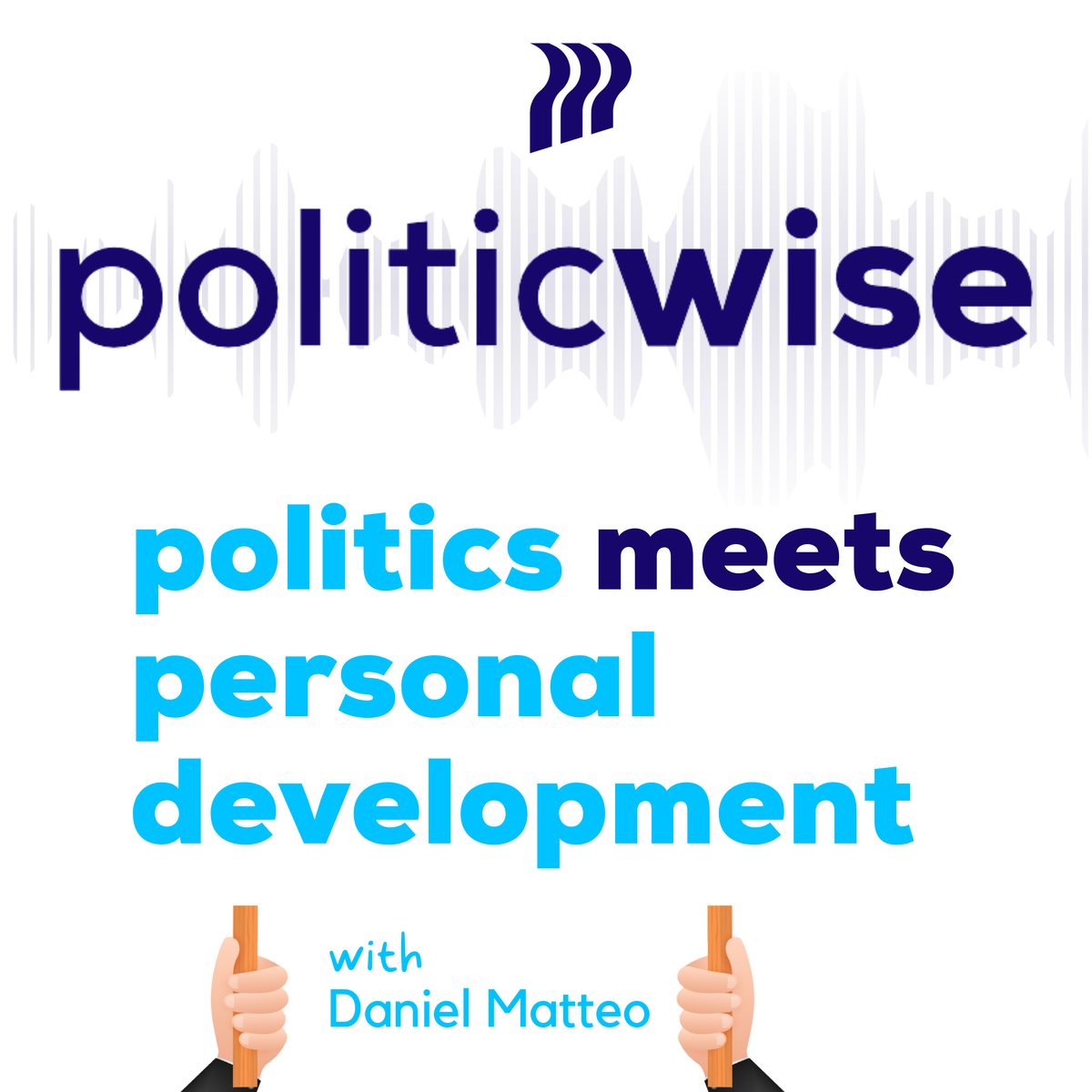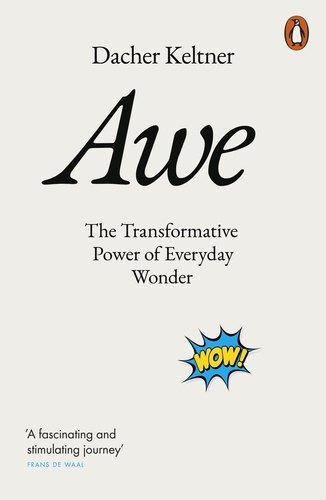Here is my weekly newsletter on politics & personal development - where I explore the mindsets & tools to thrive in politics.
If you know someone who would find the content helpful, feel free to forward it.
Also check out my podcast, deep dive articles, book notes, and quizzes on leadership style and leadership traps.
Now, let's jump into it...
When was the last time you were in awe?
You were in wonder...
You had an experience that you did not predict...
You were moved to tears or felt tingles down your spine...
You said 'wow' or 'woah'...
In our daily grind, surrounded by concrete jungles, screens, a full schedule and endless to-do lists, feeling awe seems out of reach.
So, why should you care? What is awe good for?
There are many reasons, let me focus on one:
When I read a book like 'Awe' by psychologist Dacher Keltner, my perspective typically is: what does it mean for personal growth? And for politics?
Now, imagine a world where we are less selfish: we consider the needs and interests of other people more often. Imagine a world where people are less egocentric: we take the perspective of others, don't relate everything to ourselves. Imagine politics with less selfish and less egocentric people...
A world where we feel awe, more often, could nudge us to that world & that kind of politics.
How so?
Awe induces a sense of 'small self' relative to nature, music, community, mysteries and epiphanies about the world. We get a sense that there is something more vast and more powerful than our self, that we are not the center of the universe, but also that we are somehow connected to that vastness.
In turn, studies show that 'small self' leads to more generosity, ethical decision-making and prosocial behaviour (Study).
In one study, participants were immersed in an awe-inspiring environment: they spent 1 minute looking up at towering eucalyptus trees; a control group spend 1 minute looking up at an average building.
After 1 minute, the experimenter came back and dropped a box of pens 'by accident'.
Participants in awe condition were more helpful in picking up the pens. In their survey responses, they also exhibited greater ethical tendencies and less entitlement.
This study shows that awe is not out of reach. Feeling awe is not reserved for holiday or distant places.
As the researchers conclude:
"That these effects emerged after a brief treatment condition (1 min looking at trees) indicates that even fleeting experiences of awe can have a meaningful impact on various types of prosocial judgments and behavior." (Study, p. 895)
It may take deliberate practice and focus, but we can and do experience awe in everyday life.
I'm trying to get a regular dose of awe in my life. What environment or activity would cause you to feel awe?
And: what would change in politics if we felt awe more often...
p.s. feeling awe is also good for your mental and physical health
p.p.s. I'm finishing up my book notes on 'Awe' and will share in the next newsletter. In the meantime, find more on Berkeley's awe research here (you can even take an awe quiz).
🎙️ My latest podcast
I recorded a podcast episode on 7 ideas that change how you do politics. It's based on last week's newsletter.

If you prefer to read and find links to further resources: I've also written a deep-dive article:

📚 What I read & listen to
The social psychologist Dacher Keltner is one of my favourite authors. As you can tell from today's newsletter, I'm still digesting his book 'Awe'.
What I found awesome: how little attention we give to the emotion of awe but how important it is. So important, that Keltner sees the key to happiness in life in finding awe in everyday experiences.

🖋️ My favourite quote
“The epiphany of awe is that its experience connects our individual selves with the vast forces of life. In awe we understand we are part of many things that are much larger than the self.” - Dacher Keltner in Awe, p. 250

